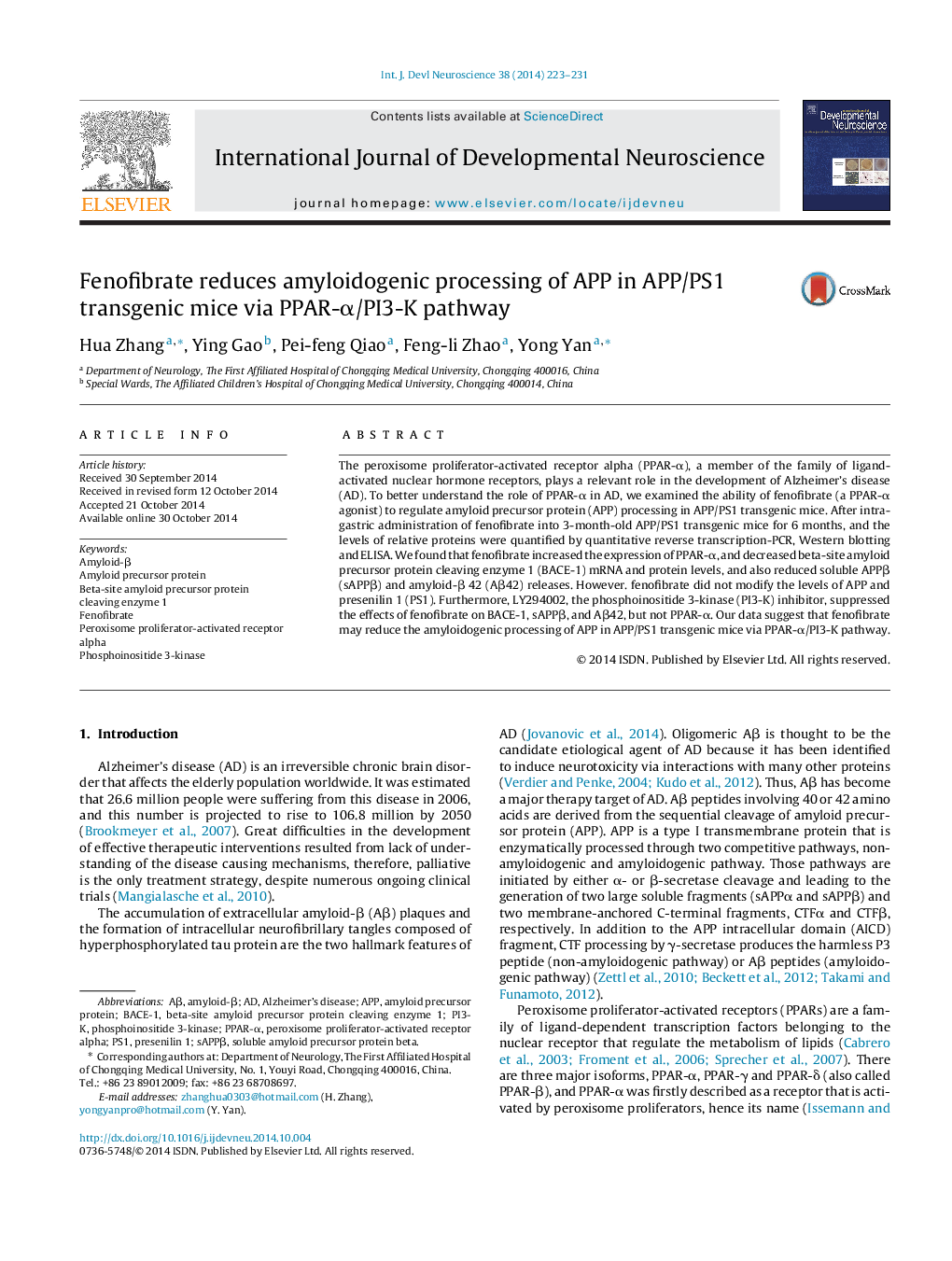| Article ID | Journal | Published Year | Pages | File Type |
|---|---|---|---|---|
| 2785972 | International Journal of Developmental Neuroscience | 2014 | 9 Pages |
•The levels of PPAR-α significantly reduced in the hippocampus of APP/PS1 transgenic mice.•Fenofibrate increased the levels of PPAR-α in the hippocampus of APP/PS1 transgenic mice.•Fenofibrate reduced the levels of BACE-1, sAPPβ, and Aβ42, but did not alter the expressions of AAP and PS1.•LY294002 reversed the effects of fenofibrate on BACE-1, sAPPβ, and Aβ42, but not PPAR-α.
The peroxisome proliferator-activated receptor alpha (PPAR-α), a member of the family of ligand-activated nuclear hormone receptors, plays a relevant role in the development of Alzheimer's disease (AD). To better understand the role of PPAR-α in AD, we examined the ability of fenofibrate (a PPAR-α agonist) to regulate amyloid precursor protein (APP) processing in APP/PS1 transgenic mice. After intragastric administration of fenofibrate into 3-month-old APP/PS1 transgenic mice for 6 months, and the levels of relative proteins were quantified by quantitative reverse transcription-PCR, Western blotting and ELISA. We found that fenofibrate increased the expression of PPAR-α, and decreased beta-site amyloid precursor protein cleaving enzyme 1 (BACE-1) mRNA and protein levels, and also reduced soluble APPβ (sAPPβ) and amyloid-β 42 (Aβ42) releases. However. fenofibrate did not modify the levels of APP and presenilin 1 (PS1). Furthermore, LY294002, the phosphoinositide 3-kinase (PI3-K) inhibitor, suppressed the effects of fenofibrate on BACE-1, sAPPβ, and Aβ42, but not PPAR-α. Our data suggest that fenofibrate may reduce the amyloidogenic processing of APP in APP/PS1 transgenic mice via PPAR-α/PI3-K pathway.
